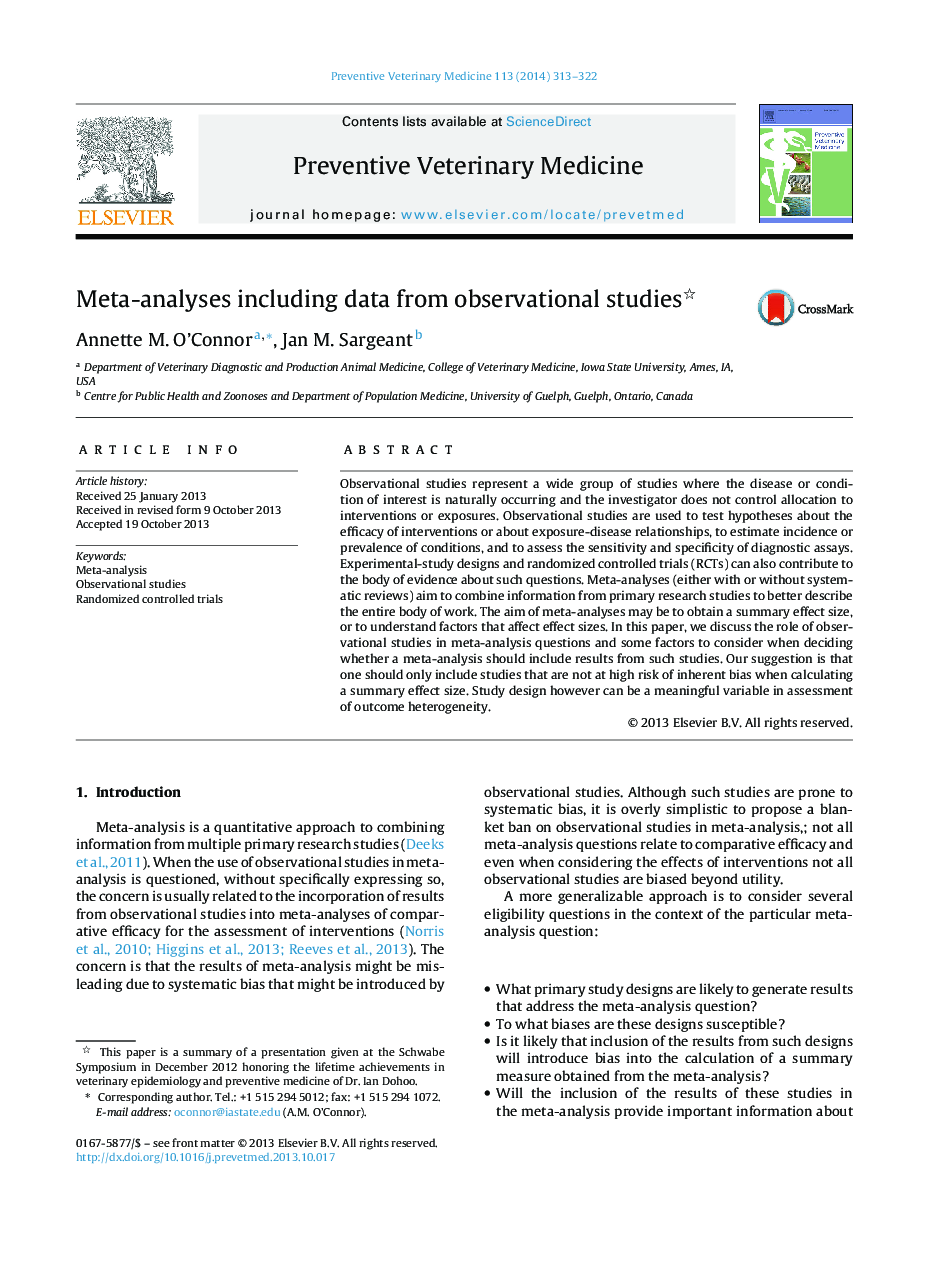| Article ID | Journal | Published Year | Pages | File Type |
|---|---|---|---|---|
| 2452531 | Preventive Veterinary Medicine | 2014 | 10 Pages |
Observational studies represent a wide group of studies where the disease or condition of interest is naturally occurring and the investigator does not control allocation to interventions or exposures. Observational studies are used to test hypotheses about the efficacy of interventions or about exposure-disease relationships, to estimate incidence or prevalence of conditions, and to assess the sensitivity and specificity of diagnostic assays. Experimental-study designs and randomized controlled trials (RCTs) can also contribute to the body of evidence about such questions. Meta-analyses (either with or without systematic reviews) aim to combine information from primary research studies to better describe the entire body of work. The aim of meta-analyses may be to obtain a summary effect size, or to understand factors that affect effect sizes. In this paper, we discuss the role of observational studies in meta-analysis questions and some factors to consider when deciding whether a meta-analysis should include results from such studies. Our suggestion is that one should only include studies that are not at high risk of inherent bias when calculating a summary effect size. Study design however can be a meaningful variable in assessment of outcome heterogeneity.
